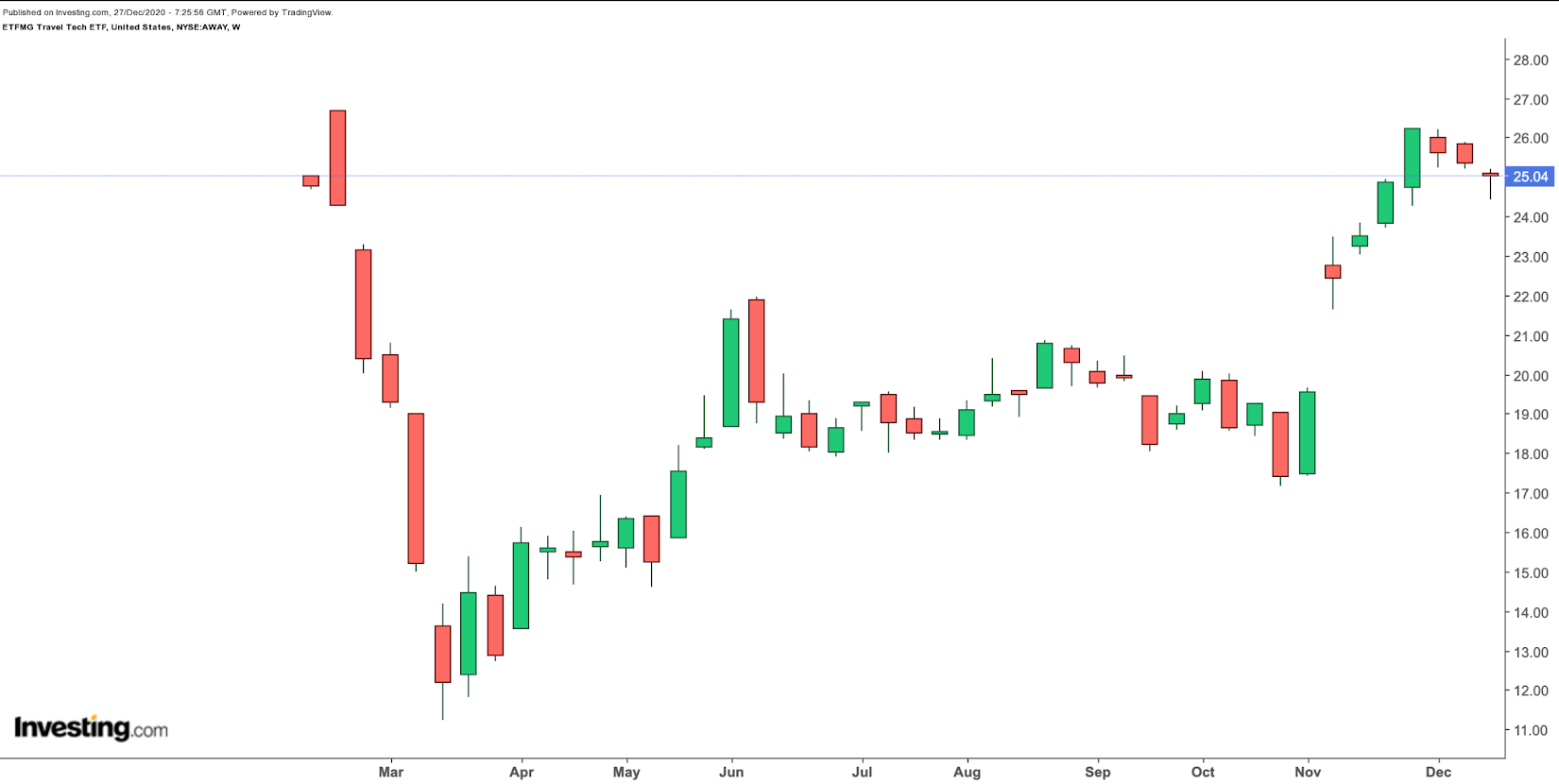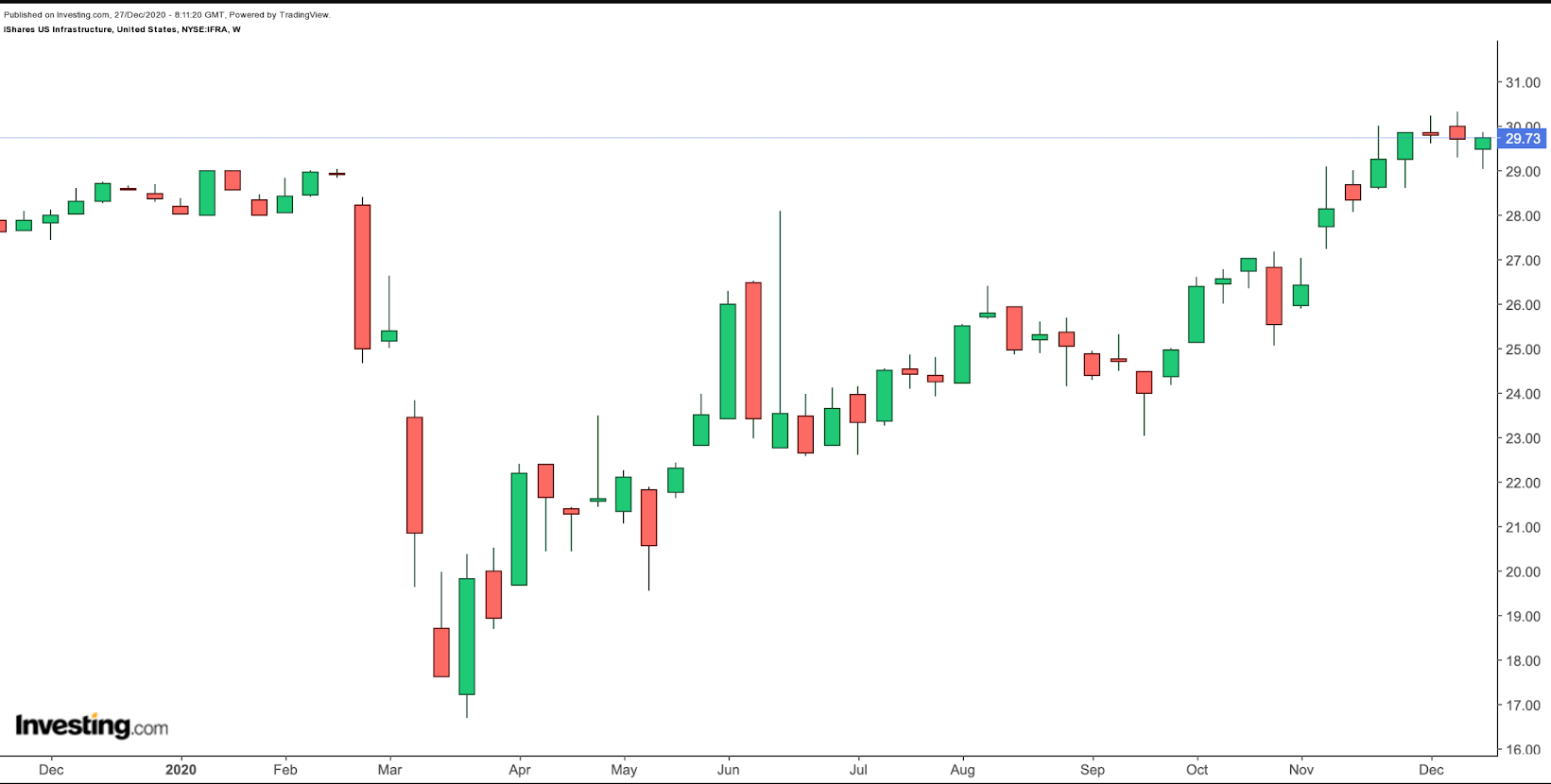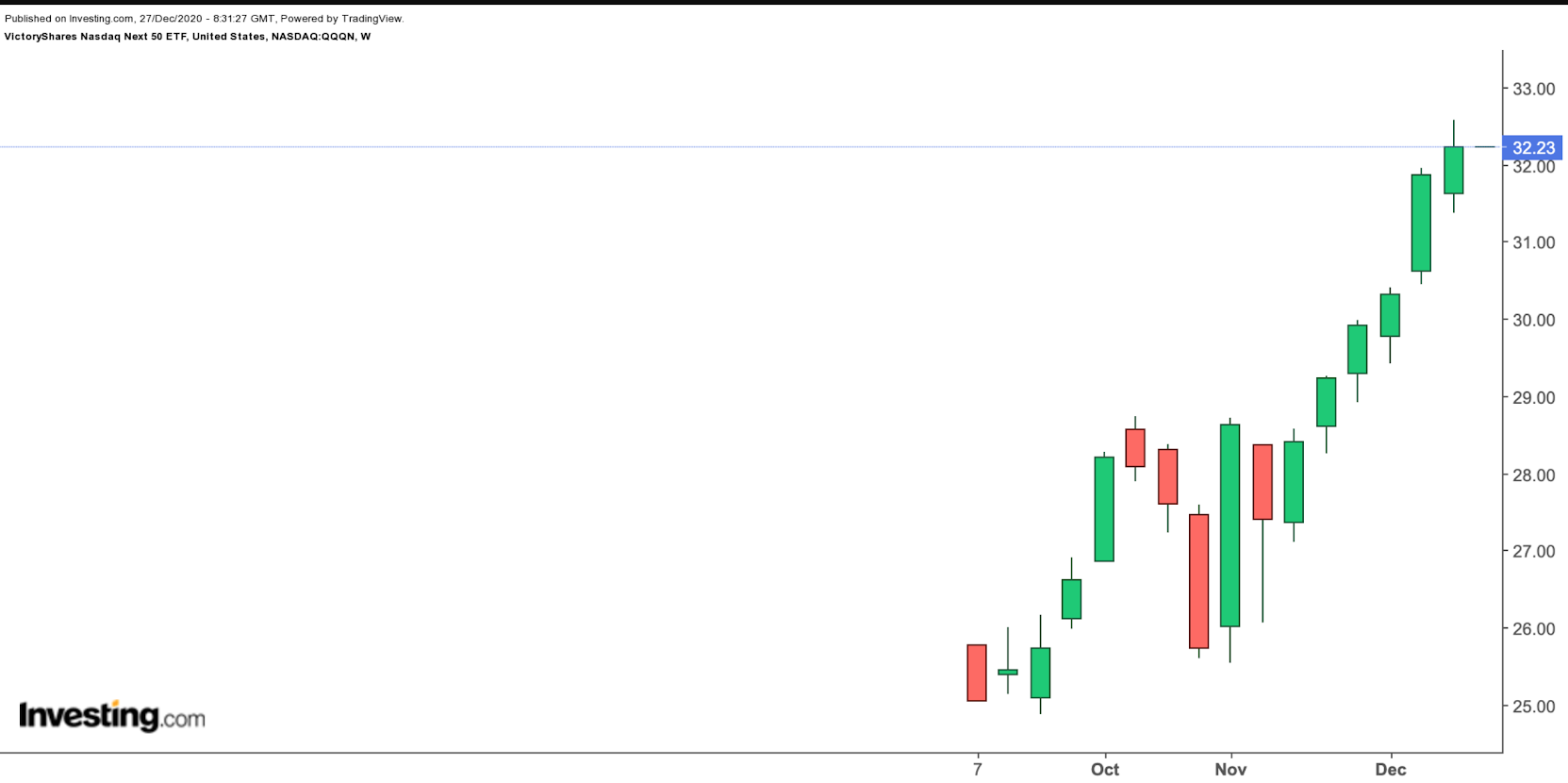As COVID-19 vaccines become more widely available, Wall Street is hopeful that 2021 will bring more normalcy and in turn revive industries stymied by the impact of COVID-19.
Last week's articles reviewed the 11 S&P 500 sectors and ETFs for exposure to each—here,}} here and here. In this post we'll focus on industries that should be on investors' radar in the year ahead and note 3 ETFs that could benefit from these shifting trends.
2021 Investment Trends
Many sectors pressured by the pandemic in 2020 could gain in 2021, including travel, leisure, commercial real estate as well as the automotive and finance industries.
If the vaccine rollout goes smoothly, we will likely see an upswing in travel, which would benefit airlines and cruise operators as well as the leisure segment which includes hotels, restaurants and entertainment venues. Commercial real estate may gain as retail malls reopen fully and companies look for office space again.
Automotive and auto parts could see higher demand as people spend less time at home; and financial institutions, such as banks where earnings have come under pressure from low-interest rates, are also in a position to benefit.
Debates leading up to the U.S. Presidential election in November illustrated that increased infrastructure spending is one issue that has bipartisan support. Given record-low interest rates, significant sums could be allocated to capital-investment activities stateside. As a result, companies focusing on urban and national infrastructure development including construction, materials, minerals, digital networks, energy systems, sanitation, and the environment are attractive.
Secular trends that stand to benefit from positive earnings growth and evolving consumer behavior patterns over time are also of interest. We'd highlight digitalization, such as artificial intelligence, Internet of Things, cloud computing, cybersecurity, fintech, blockchain (a trend that goes beyond the increase in the prices of cryptocurrencies), health care (for example, due to a global aging population or developments in genomics) and decarbonization (including clean energy and electric vehicles).
1. ETFMG Travel Tech ETF
Travel stocks were among the worst-performing shares in the S&P 500 in 2020. Those who anticipate the travel industry to make a recovery could consider researching the ETFMG Travel Tech ETF (NYSE:AWAY). With its 28 holdings, the fund offers access to tourism and travel firms dependant on technology.

The top ten names comprise around 44% of net assets of $69 million. Airbnb (NASDAQ:ABNB), which went public in December, ride-hailing and delivery app Uber Technologies (NYSE:UBER), travel and restaurant reservation platform Booking (NASDAQ:BKNG), China-based travel agency Trip.com (NASDAQ:TCOM) and Canada-headquartered ride-sharing service Facedrive (TSXV:FD) lead the names in the fund.
AWAY started trading on Feb. 13, 2020, days before the markets went into freefall, at an opening price of $25.04. By Feb. 18, the fund reached an all-time high of $26.69. On Mar. 18, it hit a record low of $11.24. On Dec. 24, AWAY closed at $25.04, the opening price from its first day of trading.
The remarkable comeback in many of the names that comprise the ETF may soon lead to short-term profit-taking. We’d look to invest for the long-term, especially in the case of a decline toward $22.
2. iShares U.S. Infrastructure ETF
iShares U.S. Infrastructure ETF (NYSE:IFRA), focuses on U.S.-based infrastructure businesses. Since its inception in April 2018, the fund’s net assets have grown to $92 million.

The ETF currently has 134 stocks. Top names include building materials and construction solutions provider BMC (NASDAQ:BMCH) and building materials manufacturer and supplier Builders FirstSource (NASDAQ:BLDR), Antero Midstream Corp (NYSE:AM), wood-alternative manufacturer Trex (NYSE:TREX) and Apogee Enterprises (NASDAQ:APOG)), which provides architectural glass, framing systems, and installation services.
Year-to-date, IFRA has returned close to 4%. On Dec. 17, it hit a record high of $30.31. The current price of $29.66 supports a dividend yield of 1.88%. We like the sector and would look to buy the dips in the fund.
3. VictoryShares Nasdaq Next 50 ETF
Our final choice for today is a young fund that focuses on a specific set of stocks on the NASDAQ Composite The VictoryShares Nasdaq Next 50 ETF (NASDAQ:QQQN) invests in 50 stocks that could be next in line for inclusion in the NASDAQ 100 index.

As the NASDAQ 100 excludes financial companies, so does QQQN. Fund managers then select the largest 50 companies, based on market cap, which are not currently included in the NASDAQ 100. The businesses can be both U.S.-based or foreign.
Cybersecurity firm CrowdStrike (NASDAQ:CRWD), advertising exchange platform Trade Desk (NASDAQ:TTD), Roku (NASDAQ:ROKU), which provides streaming TV products and services, cloud security platform Zscaler (NASDAQ:ZS) and Coupa Software (NASDAQ:{{991169|COUP), which offers a business spend management software, are among the top stocks in the fund.
QQQN started trading on Sept. 10, 2020 at an opening price of $25.79. On Dec. 23, it saw an all-time high of $32.57 and is currently at $32.28. That is a return of 25% in less than three months. We are likely to increasingly hear the names of these companies as innovators and potential disruptors in their respective fields. Therefore, we would look to buy the ETF, especially if there is a decline toward the $30 level.
